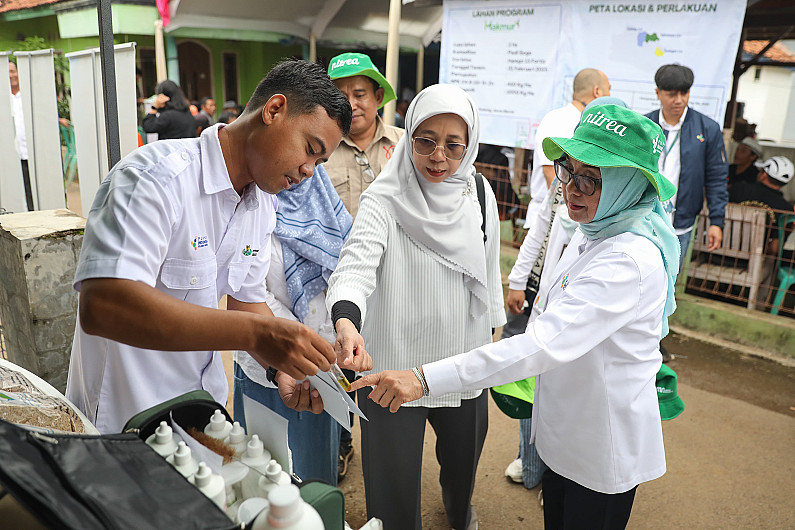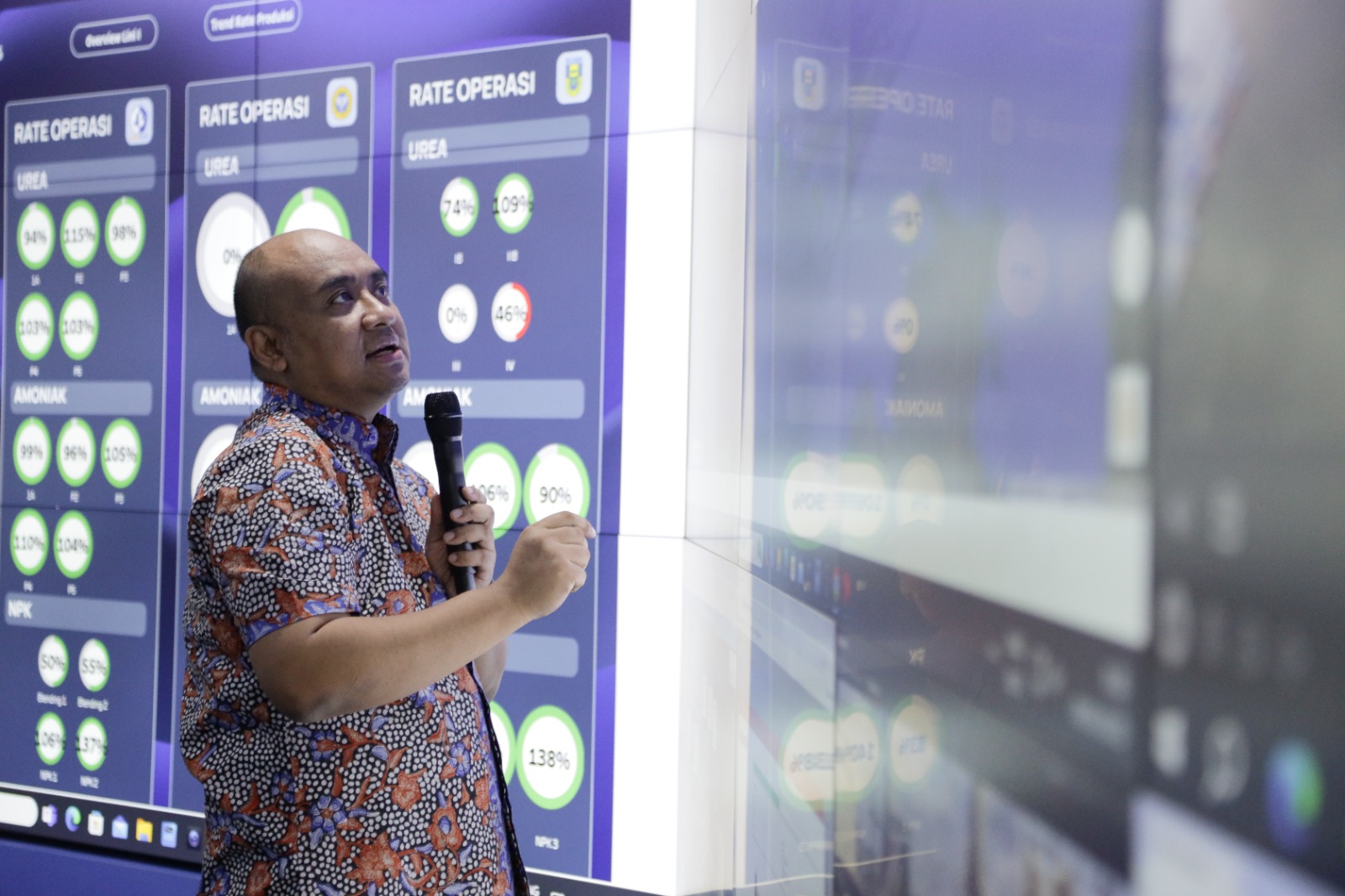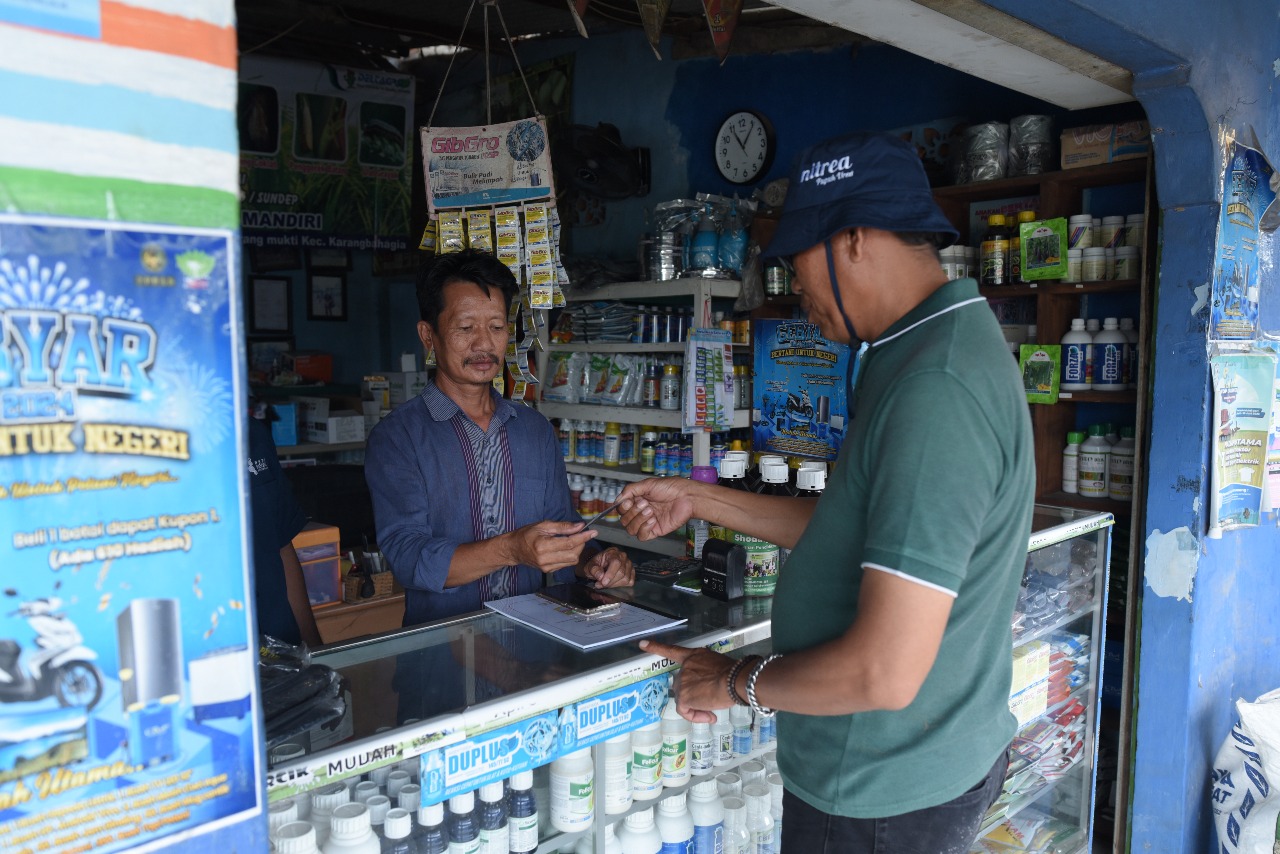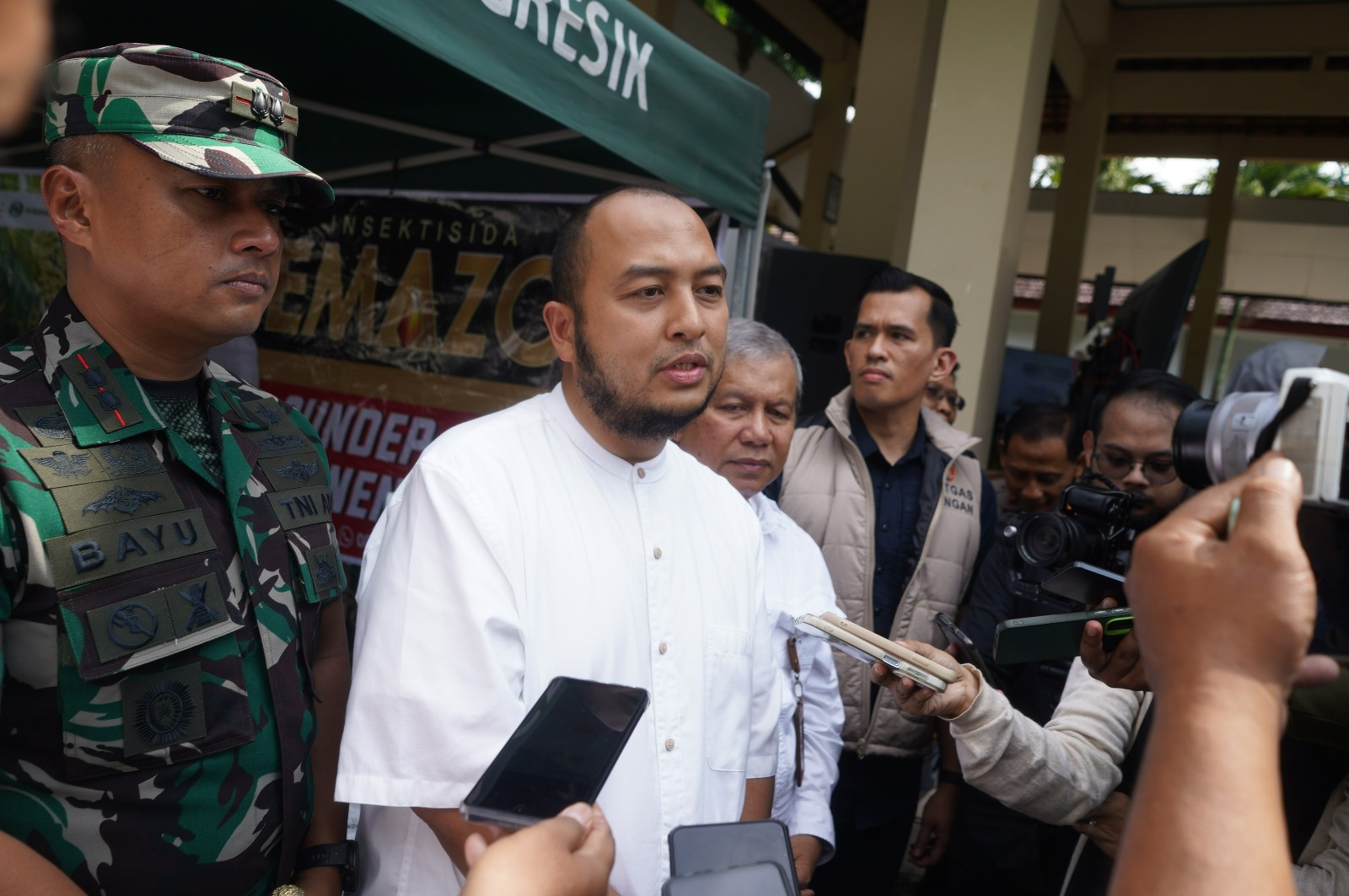Tingkatkan Kesejahteraan Petani, Pupuk Indonesia Siap Beri Pendampingan Petani Dengan Program Makmur

Subang, 21 Januari 2025 – Dalam rangka meningkatkan produktivitas dan kesejahteraan petani nasional serta berkontribusi pada program swasembada pangan nasional, PT Pupuk Indonesia (Persero) siap memberikan pendampingan kepada seluruh petani melalui program Makmur. Saat ini, Perusahaan sedang menyelenggarakan Safari Makmur di Subang, Jawa Barat khusus penanaman padi di lahan kering.
Direktur Sumber Daya Manusia (SDM) Pupuk Indonesia, Tina T. Kemala Intan (mengenakan topi warna hijau - red.) mengatakan bahwa Safari Makmur merupakan kegiatan yang bertujuan untuk meningkatkan pengetahuan dan kapabilitas dari petani melalui kemitraan strategis stakeholder melalui layanan pengujian tanah, dosis pemupukan, serta memaksimalkan peran Pupuk Indonesia dalam mendukung ketahanan pangan nasional yang telah menjadi asta cita Presiden Prabowo.
“Jadi program Makmur ini untuk meningkatkan produktivitas lahan pertanian dengan cara memberikan pendampingan mulai dari cara menggunakan pupuk, hingga memberikan petani akses kepada offtaker yang siap membeli hasil panen dari petani,” demikian ungkap Tina.
Pada lahan petani binaan di lokasi ini, dilakukan uji demplot Pupuk NPK Formula Khusus Padi Gogo dengan Benih Padi Inpago 13 Fortize di lahan seluas 1 (satu) hektar. Aktivitas pengujian ini, merupakan kerjasama Pupuk Indonesia dengan PSI-TP Kementerian Pertanian untuk perluasan lahan tanam padi gogo khususnya di Provinsi Jawa Barat. Kondisi saat ini, produktivitas tanaman padi gogo di lahan kering secara nasional hanya mencapai 3 - 4 ton per hektar. Adapun melalui intervensi teknologi benih padi dan Pupuk NPK Formula Khusus ini, diharapkan produktivitas padi di lahan kering meningkat menjadi rata-rata 6 ton per hektar.
Program Makmur memiliki kepanjangan “Mari Kita Majukan Usaha Rakyat”, program yang diluncurkan oleh Menteri BUMN, Erick Thohir ini merupakan sebuah ekosistem pertanian yang terintegrasi dari hulu ke hilir sehingga dapat memberikan banyak manfaat bagi petani dalam meningkatkan produktivitas dalam mendukung program pemerintah mewujudkan swasembada pangan.
Melalui program Makmur, petani dapat mengetahui kandungan hara tanah melalui fasilitas Mobil Uji Tanah (MUT). Tujuannya, petani memperoleh rekomendasi dosis pupuk sesuai dengan kebutuhan tanah dan tanaman yang akan ditanam, sehingga petani dapat melakukan budidaya pertanian yang baik dan benar.
“Aktivitas pendampingan berfokus pada peningkatan produktivitas, jadi apa yang dimaksud meningkatkan produktivitas ini adalah mendapatkan pendampingan lebih banyak, jumlah panennya lebih besar dari sebelumnya,” jelasnya.
Hingga Desember 2024, Program Makmur yang dijalankan oleh Pupuk Indonesia telah melibatkan sebanyak 170.969 petani dengan total realisasi lahan mencapai 451.537 hektar di berbagai wilayah di seluruh Indonesia. Program ini mencakup berbagai komoditas strategis, termasuk padi, tebu, jagung, sawit, kopi, dan hortikultura. Kontribusi terbesar berasal dari komoditas padi dengan luas lahan 124.845 hektar dan melibatkan 40.416 petani.
Tina mengungkapkan bahwa program Makmur akan terus dilanjutkan pada tahun 2025. Program ini menjadi salah satu upaya Pupuk Indonesia berkontribusi mewujudkan swasembada pangan nasional. Pada tahun ini, Pupuk Indonesia memiliki target realisasi program Makmur di lahan seluas 500 ribu hektare yang tersebar di berbagai daerah di Indonesia. Dimana 200 ribu hektare khusus untuk tanaman padi, dan 300 ribu hektare selebihnya adalah komoditas non padi, seperti tebu, singkong, kopi, kakao, kelapa sawit, hortikultura, dan lainnya.
Pada kesempatan ini, Tina mengajak petani terdaftar untuk segera melakukan penebusan pupuk bersubsidi yang sudah dialokasikan Pemerintah sebesar 9,55 juta ton. Alokasi tersebut terbagi menjadi Urea 4,6 juta ton, NPK 4,2 juta ton, NPK Formula Khusus 147.798 ton, dan Organik 500.000 ton.
“Pupuk Indonesia akan terus bekerja keras untuk berkontribusi mewujudkan swasembada pangan, dengan menyalurkan pupuk bersubsidi. Pada tahun 2025, Pupuk Indonesia mendapat amanah menyalurkan pupuk bersubsidi sebanyak 9,55 juta ton, jadi para petani harus diingat, kalau sudah dapat jatahnya bapak ibu harus menebus, kalau tidak ditebus tahun depannya dikurangi, jadi harus rajin menebus, kalau tebus harus bawa KTP sama uang,” tutupnya.







